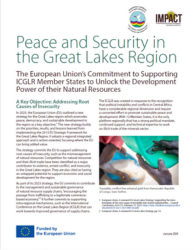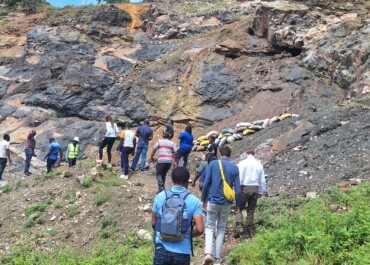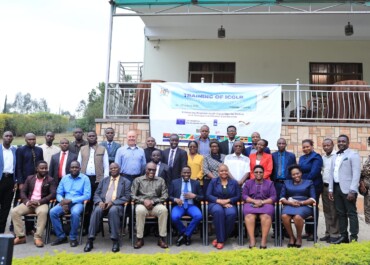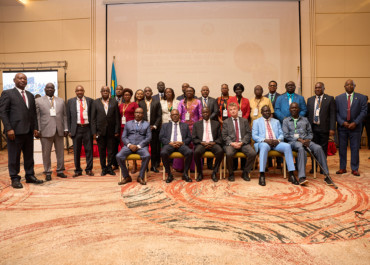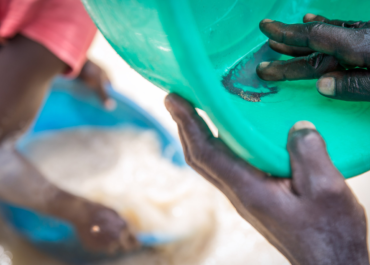Peace and Security in the Great Lakes Region
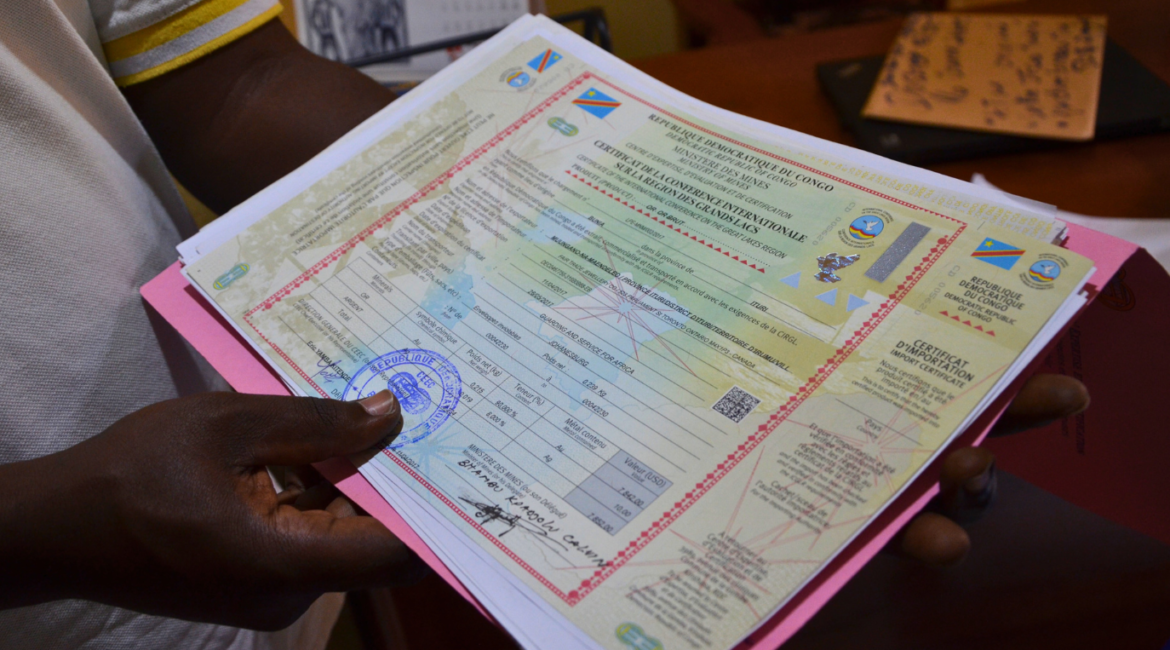
Supporting the ICGLR and its Member States to Improve Governance of their Mineral Resources
The Peace and Security in the Great Lakes Region project aims to improve mineral governance in the region while advancing security, stability, and development. The project builds the capacity of the International Conference on the Great Lakes Region (ICGLR) and its Member States to address artisanal mineral flows and harness their potential as drivers for economic and social development, as well as stability and security.
How will Peace and Security in the Great Lakes Region improve mineral governance?
1. Control artisanal mineral resources, including environmental and social impacts with a particular attention to women and youth
The importance of the artisanal mining sector to economic and social development is still untapped—with it mostly seen as a driver of conflict and insecurity. The project will update the Regional Initiative against the Illegal Exploitation of Natural Resources (RINR) to reflect stakeholder needs and investment in value addition within the region, as well as support its implementation. Sensitization of the ICGLR’s Formalization Guidance will be carried out and support will be provided to implement it, with a particular attention to the impact on women and youth. Analysis of value-addition in the region will generate guidelines for Member States.
2. Apply strategies and best practice models to artisanal gold export regimes
The project will identify and provide training on best practice models to reform artisanal gold export regimes, to align with the ICGLR’s ASM gold strategy. Additionally, the project will support the ICGLR to develop a strategy addressing willing and non-compliant aggregators of artisanal 3T and gold minerals. The project will provide support to the ICGLR for continued engagement with international markets, including importing countries and trading hubs.
3. Adopt improved Regional Certification Mechanism (RCM) systems and procedures
The project will support more efficient and cost-effective RCM systems and procedures that meet market expectations. For the RCM to be recognized by the international market, a benchmarking exercise in collaboration with market actors will be undertaken. A data compatibility review and training will support data analysis and reporting, and the project will ensure data security and data sharing protocols are in place. The project will support the ICGLR to identify in-region chain of custody or auditing service providers and address market alignment gaps.
How will the project provide capacity building to ICGLR and Member States?
The project has adopted the approach of building the capacity of the ICGLR Technical Unit on Natural Resources, who in turn will support the Member States—rather than implementation and activities within the Member States themselves. By developing a strong curriculum of resources including implementation guidance, training materials, and best practice papers or running train-the-trainer workshops, the ICGLR staff will be able to more effectively support Member States to adopt policies and procedures to improve natural resource governance.
About the ICGLR
The ICGLR was created in response to the recognition that political instability and conflicts in Central Africa have a considerable regional dimension and require a concerted effort to promote sustainable peace and development. With 12 Member States, it is the only platform regionally that has a strong political mandate, continued support, and technical expertise to work on illicit trade of the minerals sector.
IMPACT is a technical partner to the ICGLR and has provided support since the Pact on Security, Stability and Development in the Great Lakes Region was signed by Heads of State in 2006. Read about our collaboration with the ICGLR to implement the Regional Certification Mechanism and develop the Regional Database on Mineral Flows.

Peace and Security in the Great Lakes Region is a 7.1 million € ($7.5 million USD) project funded by the European Union, implemented over four years (2024-2027).
The project is funded as part of the European Union’s renewed 2023 strategy for the region which commits to addressing the root causes of insecurity, such as the mismanagement of natural resources. Officially, the Regional action to contribute to the improvement of mineral resources governance in the Great Lakes region, the project builds on its first phase which ended in 2022. The project’s focus on improved mineral governance is one component of the larger European Union program aimed to consolidate peace and security in Africa’s Great Lakes region.
Recent Highlights
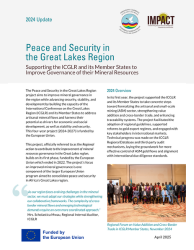
Peace and Security in the Great Lakes Region: Key Results in 2024
April 2025
Learn more about the achievements from Year 1 of implementation of the Peace and Security in the Great Lakes Region project.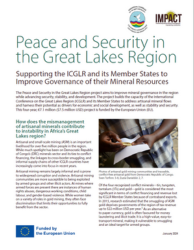
Peace and Security in the Great Lakes Region
January 2024
Learn more about how the Peace and Security in the Great Lakes Region project supports mineral governance. Also available in Portuguese.